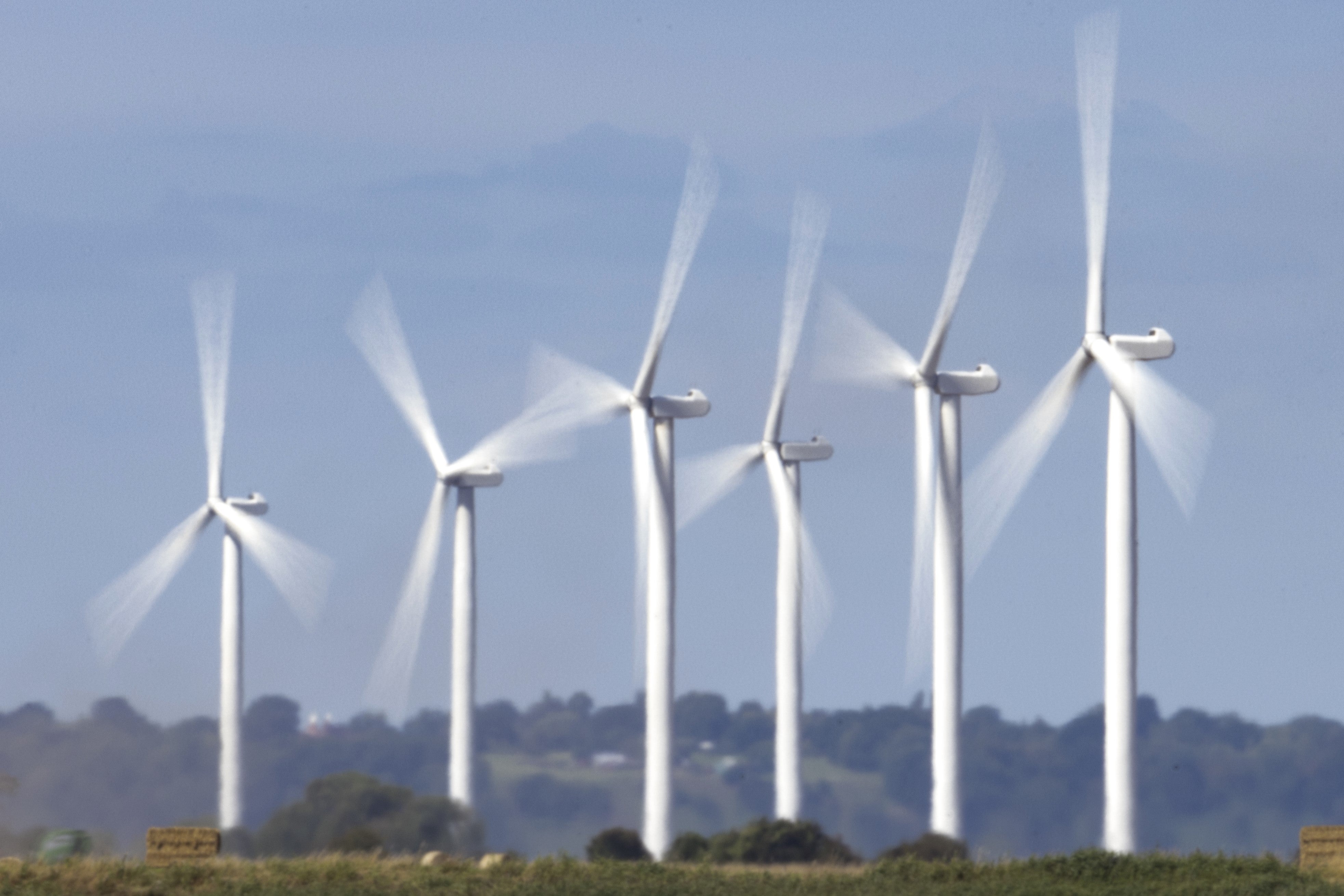Renewable energy overtakes gas in the UK, analysis shows
Record-breaking renewable energy production signals ‘end to fossil age’, some researchers believe

Your support helps us to tell the story
This election is still a dead heat, according to most polls. In a fight with such wafer-thin margins, we need reporters on the ground talking to the people Trump and Harris are courting. Your support allows us to keep sending journalists to the story.
The Independent is trusted by 27 million Americans from across the entire political spectrum every month. Unlike many other quality news outlets, we choose not to lock you out of our reporting and analysis with paywalls. But quality journalism must still be paid for.
Help us keep bring these critical stories to light. Your support makes all the difference.
Renewable energy sources generated more electricity than gas in the UK this winter, according to new analysis.
The Energy and Climate and Intelligence Unit found that hydro, solar and wind energy produced 55 terawatt hours (TWh) of electricity – enough to power around 21 million homes for a whole year.
This represented around 40 per cent of the UK’s power generation over the winter months, with gas accounting for around a third and other sources like nuclear and biomass making up a further 25 per cent.
“With or without new licences, the North Sea will continue its inevitable decline so we’ll need to import ever greater quantities of gas from abroad unless we cut our demand by rolling out more renewables,” said Jess Ralston, the head of energy at ECIU.
“The price of gas is set by international markets, so the choice for the UK is stark: Boost British renewables and achieve clean power or import more gas at a price we can’t control.”
A 2023 report from UK-based energy think tank Ember found that clean energy trends point towards a new era of fossil fuel decline.
“In this decisive decade for the climate, it is the beginning of the end of the fossil age,” Małgorzata Wiatros-Motyka, a senior electricity analyst at Ember, said at the time.
“We are entering the clean power era. The stage is set for wind and solar to achieve a meteoric rise to the top. Clean electricity will reshape the global economy, from transport to industry and beyond.”
Electricity is the highest emitting sector of carbon dioxide globally, making it a major focus for meeting climate targets.
In January, the International Energy Agency (IEA) revealed that the world added 50 per cent more renewable energy in 2023 than 2022, largely driven by solar power adoption.
“There are still some big hurdles to overcome, including the difficult global macroeconomic environment,” said Faith Birol, IEA’s executive director.
“For me, the most important challenge for the international community is rapidly scaling up financing and deployment of renewables in most emerging and developing economies, many of which are being left behind in the new energy economy.”
Join our commenting forum
Join thought-provoking conversations, follow other Independent readers and see their replies
Comments